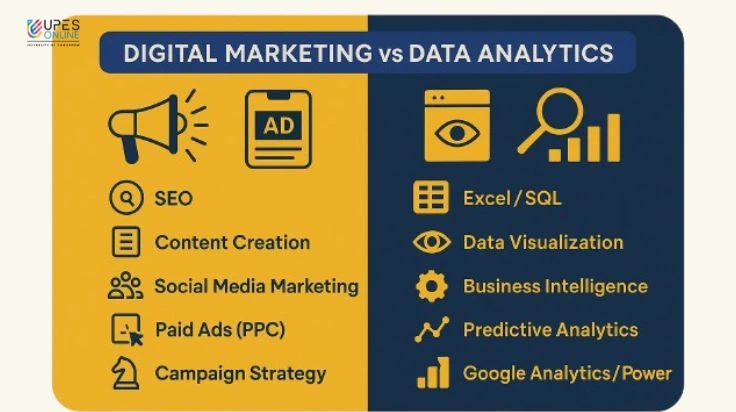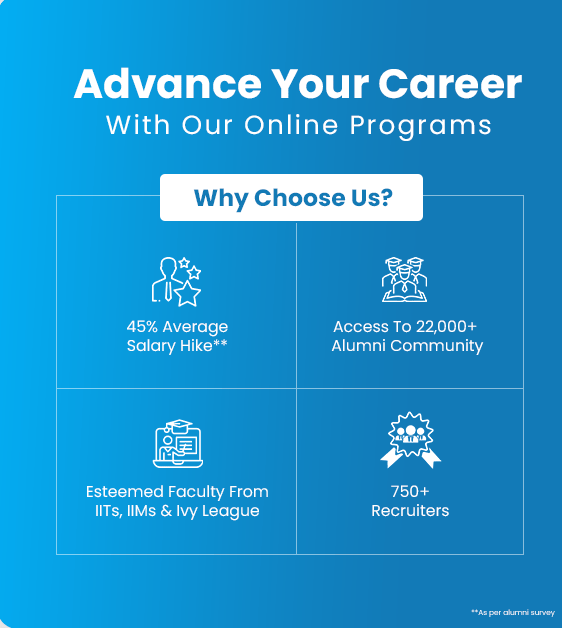Upskilling in 2026: Trends Shaping Behavior

In today’s world, staying relevant and adapting to changing job requirements has become crucial for career success. Upskilling in 2023 refers to acquiring new skills or enhancing existing ones to improve knowledge and abilities in a specific field or industry.
With the emergence of various trends shaping people’s behavior in upskilling strategy in 2023, individuals recognize the need to continuously learn and upgrade their skill sets to remain competitive in the job market. Whether adapting to new technologies, responding to industry shifts, or preparing for future challenges, upskilling is becoming a core strategy for career growth and advancement.
What is Career Upskilling?
- Career upskilling refers to acquiring new skills or enhancing existing ones to improve knowledge and abilities in a specific field or industry.
- It is a deliberate and proactive approach to professional development aimed at staying relevant and adapting to the changing demands of the job market.
- Upskilling involves continuous learning, acquiring new competencies, and expanding one’s skill set to meet current and future job requirements.
The Goal of Upskilling
The goal of upskilling is multifaceted and centered around professional growth and advancement. By engaging in upskilling activities, individuals strive to achieve the following objectives:
Filling Skill Gaps and Enhancing Current Roles
One of the goals of upskilling is to fill skill gaps and enhance performance in current job roles. As industries evolve, new skills become essential for success. Upskilling allows individuals to acquire the necessary knowledge and expertise to excel in existing positions. By investing in relevant upskilling opportunities, individuals can enhance their performance, increase productivity, and improve job satisfaction.
Broadening Skill Sets and Exploring New Opportunities
Another goal of upskilling is to broaden skill sets and explore new opportunities within one’s field or beyond. As job markets become more competitive and industries experience rapid changes, individuals must adapt and expand their skill sets to remain versatile and open up new career pathways. By acquiring diverse skills, individuals can pursue different roles, take on more responsibilities, and capitalize on emerging trends and opportunities.

The key difference between upskilling and reskilling lies in their focus: upskilling involves acquiring new skills or enhancing existing ones to improve proficiency in a specific field, while reskilling involves learning entirely new skills to transition into a different area or occupation.
Career Advancement and Increased Earning Potential
Upskilling plays a crucial role in career advancement and increased earning potential. By continuously upgrading skills and acquiring new knowledge, individuals are valuable assets in organizations. Upskilling enhances professional credibility and increases the chances of promotion to higher-level positions with greater responsibilities and rewards. In addition, individuals with specialized skills and expertise command higher salaries and have more bargaining power in the job market.
Research from McKinsey Global Institute suggests that up to 375 million workers worldwide may need to switch occupational categories by 2030 due to automation. This emphasizing the importance of reskilling and upskilling to adapt to new job requirements.
Is Upskilling the Same as Training?
It is essential to distinguish upskilling from traditional training. While training typically focuses on providing specific knowledge or skills for a particular task or role, upskilling takes a more comprehensive approach.
- Upskilling encompasses continuous learning and development that goes beyond immediate job requirements.
- It involves acquiring transferrable skills, staying updated with industry trends, and fostering a growth mindset to adapt to evolving workplace demands.
- Upskilling is a proactive and intentional strategy for long-term professional growth and adaptability.
The benefits of upskilling include increased job opportunities, career advancement, enhanced job performance, adaptability to changing industry demands, and higher earning potential.
Example of Upskilling
Upskilling in the digital world is essential to keep pace with technological advancements, acquire digital skills for various industries, and leverage opportunities in the digital economy.

Let’s consider an example that demonstrates the process and impact of upskilling in a real-life scenario. Meet Sarah, a mid-career professional working in the field of human resources (HR). Sarah has been an HR generalist for several years, handling various HR functions such as recruitment, employee relations, and performance management. However, she has noticed a growing demand for HR professionals with analytics and data-driven decision-making expertise.
Recognizing the importance of staying ahead in her field and the potential career opportunities this skill could bring, Sarah decides to embark on an upskilling journey. She researches available resources and identifies an online course that offers in-depth training in HR analytics and data analysis techniques.
Sarah enrolled in the course and dedicated time and effort to complete the program successfully. Throughout the course, she learned how to leverage HR data, interpret analytics insights, and use them to make informed decisions and recommendations. Sarah also gained proficiency in using analytics tools and software commonly used in the HR industry.
Result of Upskilling Post-Completion
Upon completing the upskilling program, Sarah’s newly acquired skills and knowledge enabled her to contribute more strategically to her organization. She starts incorporating data analysis into her HR practices, leveraging metrics to identify trends, make predictions, and optimize HR processes. Sarah’s ability to provide data-driven insights and recommendations helps her organization make informed decisions that positively impact employee engagement, retention, and overall business performance.
Sarah’s upskilling efforts are noticed. Her enhanced expertise in HR analytics sets her apart from her peers, positioning her as a valuable asset within the HR department. As a result, Sarah is entrusted with more challenging projects and is allowed to lead cross-functional teams focused on data-driven initiatives. Eventually, her upskilling journey led her to a promotion to a managerial position. As a result, she can shape HR strategies based on evidence-based insights and contribute to the organization’s long-term success.
How upskilling helps your career
Upskilling in 2023 helps your career by expanding your skill set, increased knowledge and expertise, making you more competitive in the job market. It also results in opening up new career opportunities, and enabling career progression and advancement.
Conclusion
The trends shaping people’s behavior in upskilling strategy in 2023 reflect the increasing recognition of the importance of upskilling in today’s rapidly evolving world. As a result, upskilling has become vital to career development and professional growth, enabling individuals to stay relevant, adapt to changing job requirements, and seize new opportunities.
The goal of upskilling encompasses filling skill gaps, enhancing current roles, broadening skill sets, exploring new opportunities, and achieving career advancement with increased earning potential. By engaging in upskilling activities, individuals can continuously upgrade their skills, expand their knowledge base, and position themselves as valuable assets within their organizations.
UPES Online Admission Enquiry
Recommended Courses






Latest Blogs

Digital Marketing vs Data Analytics: Which Career Should You Choose?
Battle of skills: Digital Marketing vs Data Analytics—compare 2025 salaries, skills & job roles. Expert tips to choose your future career path!
Read MoreJun 15, 2025 I 12 mins
Why Should I Choose UPES Online? 10 Reasons Why
Explore why UPES Online stands out in online education. Learn about flexible learning, UGC-approved degrees, expert faculty & credible online programs. Enroll now!
Read MoreAug 21, 2025 I 5 min
Can Distance Learning Fully Replace Traditional MBA Education? Challenges & Limitations
Find out if distance learning can truly replace a traditional MBA. Learn key challenges, limitations, expert opinion & insights.
Read MoreSep 2, 2025 I 4 mins
Online MBA Capstone Projects and the Importance They Hold
Know the importance of online MBA capstone projects. Learn how they build real-world skills, boost career opportunities, & add industry value.
Read MoreSep 7, 2025 I 5 mins
UPES Online MBA vs Other Top Universities: Why Students Prefer UPES
Compare UPES Online MBA with other top universities. Know why students prefer UPES online over others. Check fee, flexibility, faculty, ROI, & career scope.
Read MoreOct 1, 2025 I 7 mins







